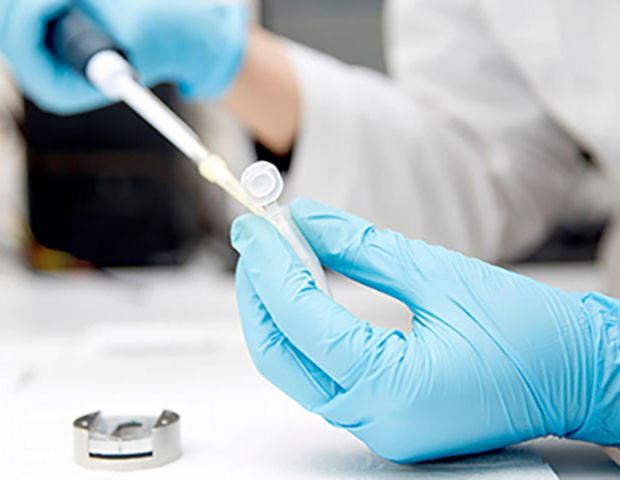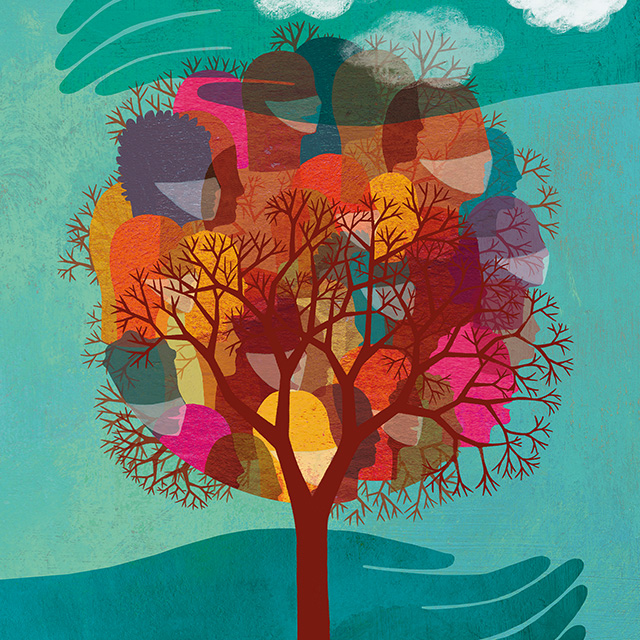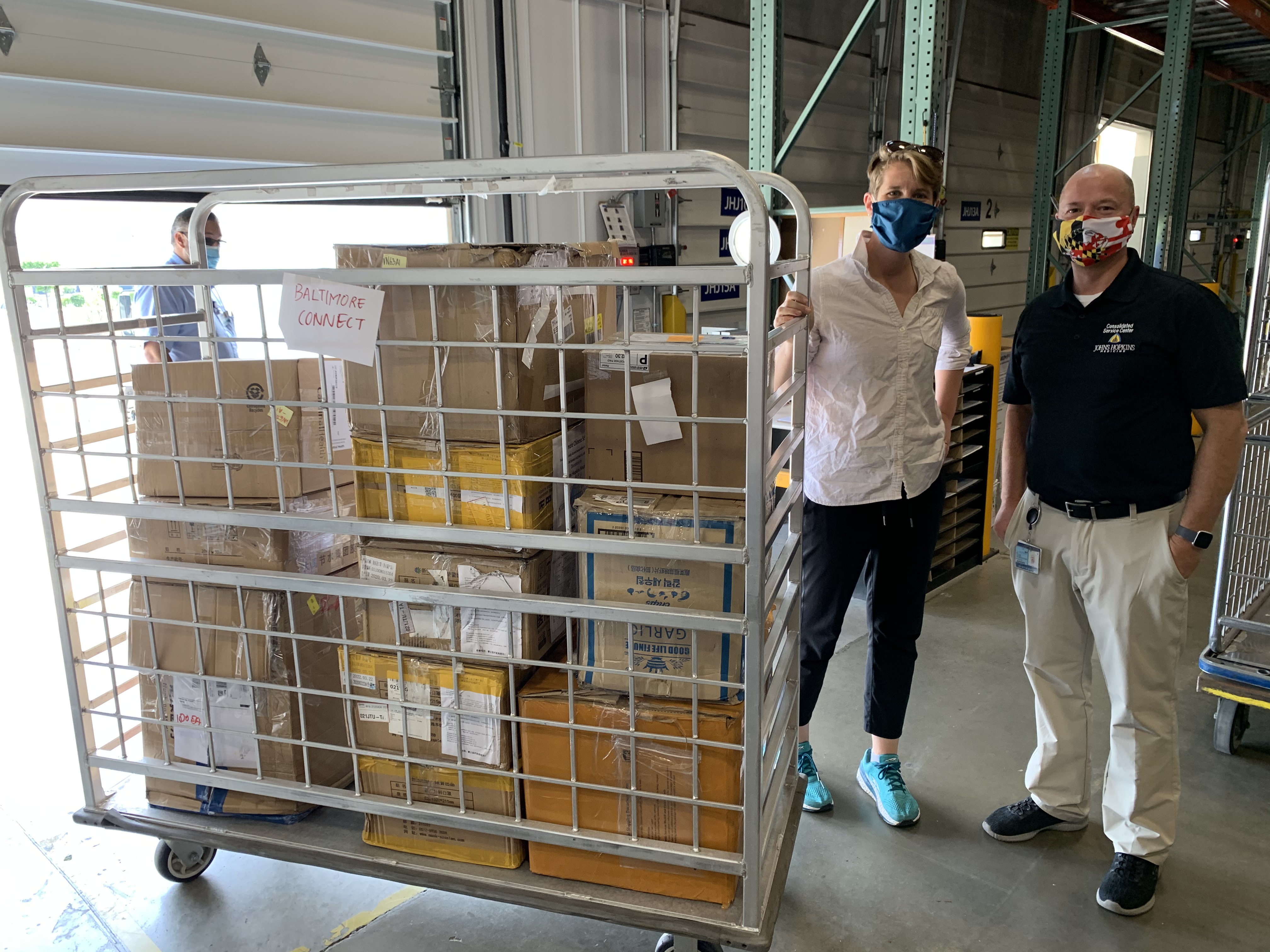For most of the COVID-19 pandemic, Albert Wu’s black Volkswagen Beetle has served as a mobile storage unit for face masks from nearly every company that manufactures or donates them.
“At any given time, I’ve got between a thousand and 10,000 masks in that car,” says the Johns Hopkins professor of health policy and medicine. “You should’ve seen it when it also had a hundred gallons of hand sanitizer in it! It was a low-rider!”
In addition to his clinical and educational duties, Wu and a handful of his Johns Hopkins colleagues manage Baltimore CONNECT, an independent nonprofit organization dedicated to boosting the work of community-based organizations (CBOs) like St. Ambrose Housing Aid Center, Our Daily Bread Employment Center, Civic Works and others.
Wu says organizations like these do “incredibly important work for our city. When one of the CBOs tells us their clients could use some more masks, we make sure they get them.”
Once a week, leaders from about 30 Baltimore human service nonprofit organizations gather on a Zoom meeting led by Wu, president of CONNECT, and coordinator Lindsay Hebert, a Johns Hopkins Medicine population health manager. Wu and Hebert provide updates on Johns Hopkins Medicine’s response to the pandemic as well as facilitate the resource-sharing that has become a hallmark of CONNECT during the pandemic.
On the Zoom meeting, CBO directors discuss what’s happening at their organizations and provide information about local funding opportunities, food, clothing, shelter and mental health services. They also discuss what needs their organizations have, and what resources they may be able to share.
“For instance, one of our members was about to get a huge but unexpected donation of perishable food. So, she brought it up on our weekly call and found another member who could accept and distribute it to people who were hungry,” Hebert says.
She mentions another CONNECT effort to link undergraduate student volunteers from Johns Hopkins with organizations who need help applying for COVID-19-related grants.
“A lot of funders are making dollars available to help during COVID-19,” she explains. “But because the pandemic is such an emergency, the applications are usually due really quickly. We’ve been able to help our CBOs with things like that.”
Clarrissa Taylor Jackson, director of programs and outreach at the Metropolitan Baltimore branch of the National Alliance on Mental Illness, says CONNECT has linked her with other nonprofits whose missions align with providing services for people living with mental health conditions.
“It’s important for us to know that there’s a wealth of trauma and grief resources accessible at [family bereavement support center] Roberta’s House or that Maryland New Directions is offering trainings and job placements,” says Taylor Jackson.
Building relationships can be difficult in the CBO community. The day-to-day pressure of fulfilling their often lifesaving missions can leave little time or energy for finding partners. Hebert says that using Zoom to communicate during COVID-19 has helped CONNECT link more CBOs together.
“There used to be monthly meetings, usually in the evening,” she says. “One of the CBOs would host and we’d all go to their place and we’d get a tour before meeting. That was great, but it wasn’t a regular enough part of anyone’s workflow.”
The weekly calls, says Hebert, have changed CONNECT’s dynamic. “There’s just such great energy” in the online meetings, she says. “The leaders on these calls are pulling in the same direction. That’s really gratifying.”

Coronavirus (COVID-19) Email Alerts
Sign up to receive coronavirus (COVID-19) email updates from Johns Hopkins Medicine.
A Sustainable Network
CONNECT was established in 2013 as a companion study to the Johns Hopkins Community Health Partnership (J-CHiP), a project funded by a $19 million Centers for Medicare and Medicaid innovation grant. Between 2013 and 2018, J-CHiP measured the effectiveness and cost-efficiency of investing in the prevention of health emergencies among underserved residents of the neighborhoods surrounding The Johns Hopkins Hospital and Johns Hopkins Bayview Medical Center.
Recognizing that about a dozen nonprofit organizations such as the Franciscan Center, Dee’s Place and Maryland New Directions provided residents with critical access to food, job training, housing and substance use disorder treatment and counseling, Wu wondered if they could also offer links to health care. He founded his organization, which he calls a “sidecar” to J-CHiP, with funding from the Patient-Centered Outcomes Research Institute (PCORI) in Washington, D.C.
“CONNECT’s goal has always been to link the social care [provided by the CBOs] to medical care,” says Wu, who also has an appointment in health policy and management at the Johns Hopkins Bloomberg School of Public Health.
As the project progressed, Wu says, “It started to become clear that these organizations were incredibly effective. But it also became apparent that, if they worked together, they could be even more effective if we connected their clients with health care.”
He welcomed several community residents as paid members of his research team, conferring the titles of “co-principal investigator” and “co-investigator” on them for a three-year study.
“It was important to include people who live in the neighborhoods of East Baltimore in designing the study,” Wu explains. “They’ve been left out of the discussion too many times by people who have come in and claimed to have all the answers.”
When Wu’s PCORI funding was complete at the end of 2015, he wrote in the study’s final report that, while direct results were difficult to pin down, the health care staff at different Johns Hopkins hospitals, clinics and physician offices were now significantly more likely to know where to refer patients who needed the kind of help CONNECT’s member organizations provide.
“The study demonstrated that facilitating the connection of a diverse group of CBOs could result in a sustainable network and forge connections with the local health system,” Wu’s final report reads.
In 2017, Baltimore CONNECT was granted federal nonprofit status, allowing it to continue operating beyond its original grant. As a result, CONNECT is eligible for more varied funding, including individual philanthropy. Hebert says that a fundraising outreach in late 2020 saw several donors make large end-of-year gifts to CONNECT, adding about $10,000 to CONNECT’s bottom line in the final days of the year.
“I’m just blown away by some people’s generosity,” she says. “These are people who saw how COVID-19 was devastating a lot of underserved communities in Baltimore. They saw us as a way to get relief straight to the people and organizations who most needed it.”
'Wintertime Is Tough'
Long-established Baltimore nonprofit organizations such as the Bea Gaddy Family Centers, the Esperanza Center and Moveable Feast are part of Baltimore CONNECT. But so are relative newcomers like Echo Resource Development and the Rich Foundation, founded by Timothy Rich in the early days of the pandemic.
The Rich Foundation works with Baltimore young people who’ve been exposed to violence and trauma.
“I started the Rich Foundation last April because I saw how many people need help,” says Rich, who grew up in the East Baltimore neighborhoods his foundation serves. “I’m happy we can be there for some people who need us.”
On a Zoom meeting in January, Rich mentioned that his organization would soon host a winter coat drive in the parking lot of a Northeast Baltimore shopping center, where people could either donate or pick up warm clothes. His organization partnered with another local agency that brought boxes of fresh fruits and vegetables to the coat drive.
Hebert posted the event information on CONNECT’s new website, and Rich worked with Johns Hopkins’ CONNECT team to publicize the event on local television stations.
On the cold Saturday morning of the coat drive, masked volunteers from the Rich Foundation staffed about a dozen folding tables stacked high with warm winter coats, hats, gloves and scarves.
“Wintertime is tough for a lot of people,” says Rich. “Especially this year.” In all, he says, the organization gave away more than 100 coats that day.
Among Rich’s volunteers for the coat drive was his 11-year-old son Tamauri, who helped greet people and families who came to donate or pick up clothing.
While other volunteers organized clothing by sizes and ages, the boy noticed a man wearing a worn-out purple Ravens sweatshirt approach the tables tentatively, unsure of what to do. Tamauri rushed to welcome the man and explained how to navigate the piles of clothes.
The boy instructed him to pick out what he needed. Then, gesturing to a pickup truck bed full of fruit and vegetables, Tamauri asked the visitor, “Would you also like one of our boxes of fresh produce?”


